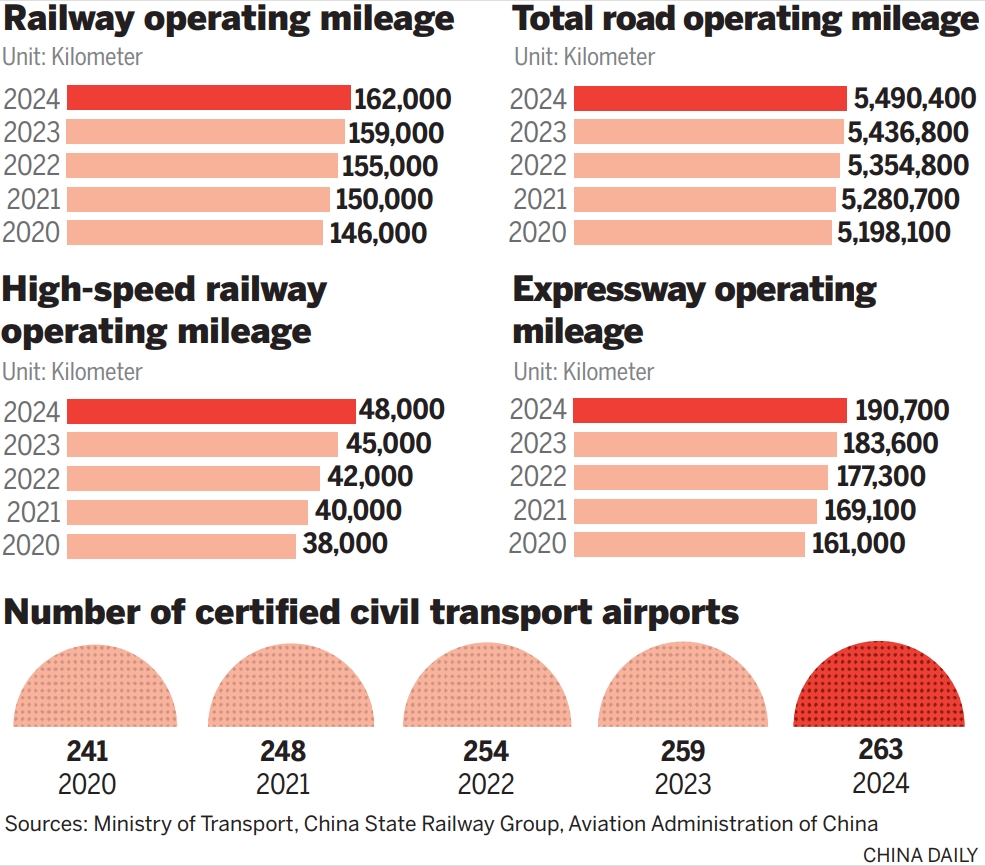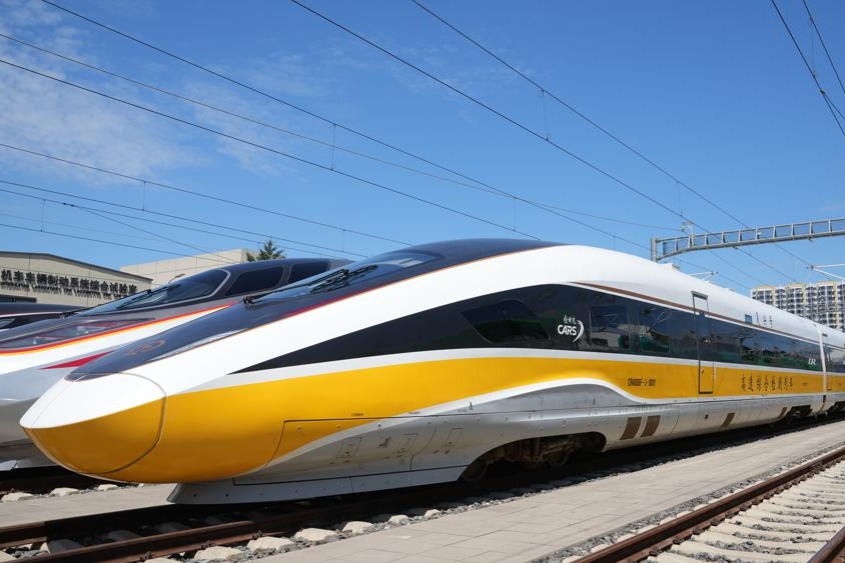Transportation sector experiences rapid development


China has either met or is on track to meet all 17 major targets set for its transportation sector under the 14th Five-Year Plan (2021-25), with six indicators already completed ahead of schedule and the remaining 11 expected to be fulfilled by the end of this year, officials said on Monday.
"China has built the world's largest high-speed rail network, expressway system, and postal and courier delivery network," Transport Minister Liu Wei said, adding that the past five years have brought historic achievements in transportation development and breakthrough progress in building a modern, comprehensive transportation system.
At the core of these accomplishments is the rapid expansion of the national integrated transportation framework. The core framework of China's national network — made up of six axes, seven corridors and eight channels — is now more than 90 percent completed, providing a solid backbone for faster, smoother and more integrated travel and logistics across the country.
From 2021 to 2024, China's total operational length of railway lines reached 162,000 kilometers, an increase of 16,000 km from 2020, including 10,000 km of new high-speed rail. Total road length expanded in that period to 5.49 million km, up by around 290,000 km, with expressways alone growing by around 30,000 km to 190,700 km.
Fixed-asset investment in transportation infrastructure reached 15.2 trillion yuan ($2.1 trillion) during the first four years of the five-year plan, a 23.3 percent increase over the first four years of the previous five-year period.
Besides the expressway length, the targets for urban rail operating length, rail access rates at major coastal ports, courier service coverage in rural villages, Beidou Navigation Satellite System usage in critical areas, and the proportion of new energy buses in cities have also been reached.
According to the 14th Five-Year Plan, by the end of 2025, the national railway operating length will reach 165,000 km, with approximately 50,000 km being high-speed rail.
"China's transportation upgrade has been marked by more diverse, convenient and higher-quality travel experiences," Liu said.
In 2024, bullet trains transported over 3.27 billion passenger trips, accounting for three-quarters of total railway ridership. The Beijing-Shanghai and Wuhan-Guangzhou high-speed lines each exceeded 200 million passenger trips annually. Civil aviation handled more than 2 million daily traveler trips, with 40 airports exceeding 10 million annual passenger trips.
On the roads, self-driving travel dominates interregional mobility, with 130 million trips daily.
"We are shifting from ensuring people can travel to ensuring they can travel well," Liu said. "This is at the heart of our 'people-centered' development philosophy."
An Lusheng, deputy head of the National Railway Administration of China, noted that trains running at 350 km per hour — a favorite among passengers — now operate on 20 dedicated lines spanning nearly 7,000 km.
"This summer, starting on July 1, we launched 350 km/h service on the Beijing-Shenyang and Hangzhou-Changsha routes. Major trunk lines like the Beijing-Shanghai, Shanghai-Guangzhou, Guangzhou-Beijing and Beijing-Shenyang are all now running at 350 km/h," he added.
Global connectivity
Officials also highlighted China's growing role in global transportation connectivity under the Belt and Road Initiative.
"Transportation is a leading sector in Belt and Road cooperation," Liu said. "Our commitment to 'connecting with the world and aligning with the times' is helping to drive shared prosperity."
Among such projects, Chancay Port in Peru, which began operations in November, is South America's first smart port, reducing trans-Pacific shipping times between South America and Asia by 10 days.
The China-Laos Railway, launched in December 2021, has handled over 53 million passenger trips and 13 million metric tons of cross-border cargo, and has been praised for its efficiency.
Liu said, "Every road, bridge and port we've built has become a symbol of connection in the new era — modern echoes of the camel caravans and sailboats that once linked continents."
- Transportation sector experiences rapid development
- China launches first national standard on school meal services
- China's nano 'two-photon factory' sets world record
- Low-altitude transit route links Shanghai, Jiangsu
- Shanghai-Hong Kong Youth Choir Festival launches
- Chinese courts step up efforts to safeguard stability





































